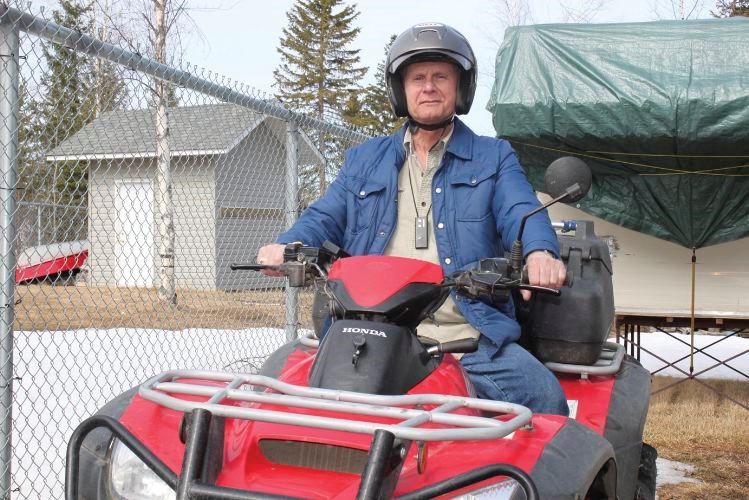Wear the gear and stay sober is the message broadcast loud and clear by Northern Health when it comes to driving ATVs this summer.
The two leading causes of injury or death of ATV riders are not wearing a helmet and driving under the influence.
"ATV injuries are a big concern in the north," said Shellie O'Brien, Northern Health injury prevention coordinator. "We see the results of these injuries in the news far too often."
The northern region experiences higher rates of injuries compared to the rest of the province, O'Brien added. Most injuries are seen in men ages 15 to 29 and youth.
"ATV injuries are still the leading cause of sports related hospitalizations in Northern Health and are four times that of the B.C. rate," said Holly Christian, Northern Health regional lead, men's health/physical activity.
Between 2001 and 2011 Northern Health experienced the highest rates of death due to off-road vehicle injury with men at more than twice the rate of women, Christian added. Between 2006 and 2011 Northern Health saw 33 deaths related to ATVs and more than half of those involved alcohol or drugs.
"The key piece is to remember that ATV injuries are preventable for the most part," said Christian.
"Men can set a great example for their children and for others in their communities by practicing safe riding and modeling the appropriate use of those vehicles. We want people to have fun and to enjoy the beauty of northern B.C. but we also want everyone to make it home safely."
Sgt. Al Steinhauser with the North District RCMP said starting in November it becomes mandatory for all off-road vehicles operating on Crown land or forest service roads on Crown land to be registered with issued plates.
"If you operate an off-road vehicle on or across a highway you are required to obtain basic insurance," said Steinhauser. "If you operate an off-road vehicle on a forest service road you are required to have $200,000 in third-party liability insurance. On all other crown land insurance is voluntary but also recommended."
Failure to do so could result in a $345 fine and the vehicle may be towed or impounded, Steihauser added.
To make sure Prince George residents drive safe Northern Health offers these ATV safety tips:
Always wear a helmet, goggles, long sleeves, long pants, over-the-ankle boots, and gloves;
Never ride on paved roads except to cross when and where this can be done safely and is permitted by law. ATVs are designed to be operated off-highway;
Never ride under the influence of alcohol or drugs;
Never carry a passenger on a single-rider ATV and carry no more than one passenger on an ATV designed specifically for two people;
Injury experts agree that children younger than 16 years of age do not have the physical development or cognitive ability to safely drive ATVS;
Once a child reaches 16 years of age, appropriate training classes are a great way to develop the skills, knowledge, and confidence required to safely operate an off-highway vehicle;
Ride only on designated trails and at a safe speed.



